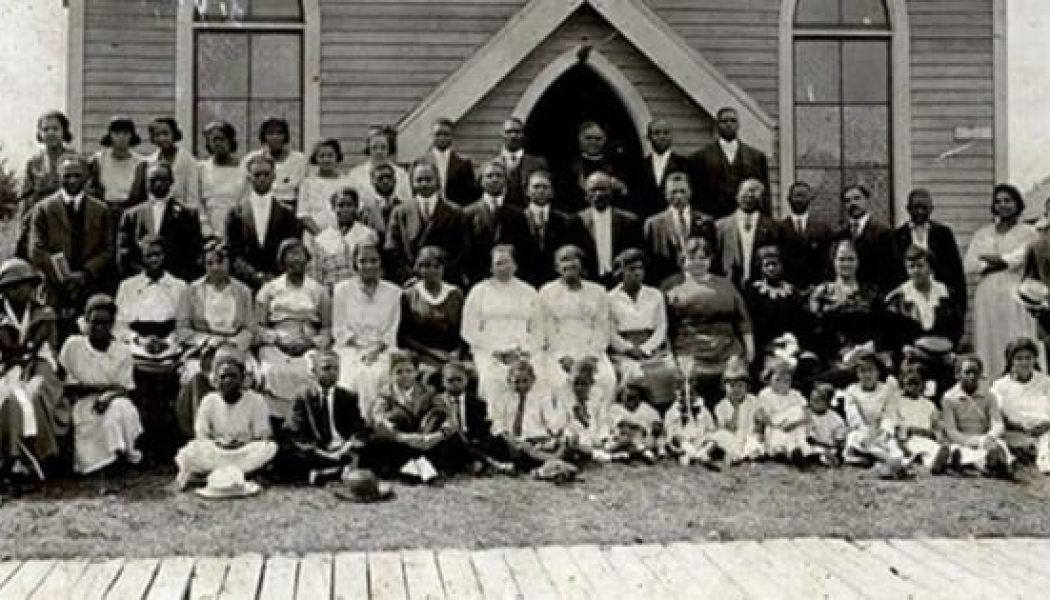prosperity
Grace Is Not a Substance
“The very center and core of the whole Bible is the doctrine of the grace of God.” –J. Gresham Machen “Grace” is the most important concept in the Bible, Christianity, and the world. It is most clearly expressed in the promises of God revealed in Scripture and embodied in Jesus Christ. Grace is the love of God shown to the unlovely; the peace of God given to the restless; the unmerited favor of God. What is grace and what are some ways people have defined grace? “Grace is free sovereign favor to the ill-deserving.”(B.B. Warfield) “Grace is love that cares and stoops and rescues.”(John Stott) “[Grace] is God reaching downward to people who are in rebellion against Him.”(Jerry Bridges) “Grace is unconditional love toward a person who does not deserve it.” (Paul Zahl) Grace is most neede...
Hobby Lobby: Standing Up for Religious Freedom
The Christian-owned arts-and-crafts chain Hobby Lobby faces steep fines for refusing to comply with the Obamacare mandate requiring employers to provide contraceptives and abortion-inducing drugs in their health insurance plans. As Hobby Lobby continues to fight the mandate in court, what are the implications of the case for religious liberty in the United States? Originally published January 23, 2013.
The Apostles’ Creed, Part 3: Jesus Christ
As the earliest extra-biblical Christian confessional document, the Apostles’ Creed has stood the test of time as the preeminent testament to creedal orthodoxy. The creed, attributed to the earliest missionary followers of Jesus, distills the basic outline of what it means to be a Christian into a short summation that belies the depth and richness of what it proclaims. The Apostles’ Creed We believe in God, the Father Almighty, the Maker of heaven and earth, and in Jesus Christ, His only Son, our Lord: Who was conceived by the Holy Spirit, born of the virgin Mary, suffered under Pontius Pilate, was crucified, dead, and buried; (He descended into hell.)1 On the third day He rose again from the dead; He ascended into heaven, and sits at the right hand of God the Father; from which he w...
Mark Driscoll on the Life-Shaping Issue of Identity
People have struggled with the question of identity since the very beginning of creation. How you view yourself deeply effects how you live your life. In his book, “Who Do You Think You Are? Finding Your True Identity in Christ” (Thomas Nelson, 2013), Mark Driscoll takes readers through the New Testament letter of Ephesians for the definitive answer from God’s Word. In this webcam interview, Mark discusses the vital question of identity with Christianity.com Editor, Alex Crain. (Mark Driscoll is Originally published January 29, 2013.
6 Ways to Deepen Your Church’s Sense of History
Recently, I was asked why some evangelicals convert to Eastern Orthodoxy and Roman Catholicism. Reasons vary, I am sure, but I commented that one theme I have noticed over the years is the fact that evangelicalism lacks historical roots. That is not to say that it has no history; rather it is to say that a consciousness of history is not part of the package. Rock band worship, Beautiful People everywhere (miserable middle aged plain people need not apply), and history nowhere in sight unless it is a reference in the sermon to an early Coldplay album. On that level, I can understand why people looking for something serious, something with a sense of theological and historical gravitas, simply give up on evangelicalism and start looking elsewhere. Some adul...
10 Reasons Why It Is More Blessed to Give than to Receive
The most unbelieved beatitude in the Bible is: “It is more blessed to give than receive” (Acts 20:35). The giver happier than the getter? Surely some mistake? That goes against all our intuitions and instincts. So let me help you to believe it and act upon it by giving you ten reasons why it is more blessed to give than to receive. 1. Giving obeys God’s command The Old Testament has way more commands about financial giving – who, when, and how much – than the New Testament. Maybe the New Testament writers just assumed that as God had given far more to us in the New Testament – giving Himself to death – that our giving should follow fairly logically and easily. But, just in case we might miss the link, there are clear New Testament commands also (e.g. 1 Corinthians 1:2). As all of God’s com...
What Is Postmillennialism?
Postmillennialism is an end-times view that focuses on the progressive victory and expansive influence of Christianity. It believes that we are currently living in the “Millennium” and that, during this indefinitely long period of time, Christians are tasked to extend the Kingdom of God in the world through the preaching of the gospel and the saving work of the Holy Spirit in the hearts of individuals. Postmillennialists believe that, as more people are saved, the Millennium will become an increasing golden age of spiritual prosperity with uplifted social, economic, political and cultural life. The world will eventually enjoy a state of righteousness and peace hitherto unseen. Only after the completion of this period will Christ return. Proponents of this view include John Calvin, William ...
The Resurrection Changes Everything
How important is the resurrection to your faith? Not to the doctrinal center of your belief system, but to the day-to-day out-working of your salvation? If your mind draws a blank, you may be missing the power of the resurrection in your personal walk with God. Steve Mathewson, pastor of CrossLife Evangelical Free Church in Libertyville, Illinois is an adjunct professor in preaching at Trinity Evangelical Divinity School. He has written a helpful book called risen: 50 reasons why the resurrection changed everything (Baker Books) which unpacks the significance of Christ’s resurrection. Today, he joins me on the blog for a conversation about his book. Trevin Wax: In the foreword to your book, Craig Blomberg writes: Christian teaching often focuses more on the questi...
4 Reasons Why Christians Have Nothing to Fear
We do many things to avoid death, the pain of death, and the uncertainty about what awaits us after death. Some people refuse to plan their wills or attend funerals, for that forces them to think morbid thoughts. Others avoid new ventures that involve air travel even though you are more likely to be in a car accident than a plane crash. Still others of us shrink back from sharing our faith where it would mean persecution or possibly martyrdom. If we are going to be people who live Christ-centered, counter-cultural lives, we cannot let death bully us with concerns about death itself, the manner of our demise, and what lies just past the door to the afterlife. Instead, we must be fully assured that Christ’s work in the incarnation, on the Cross, and in the resurrection means for us that ther...
Learning to Be the Moral Minority from a Moral Minority
Of late, the evangelical world has found itself reeling from cultural setbacks it once took for granted. The re-election of President Obama, state passage of “gay marriage” initiatives, the uninviting of Louie Gigglio to the Inauguration, and even Super Bowl 2013 have signaled to some that Christians and Christianity have lost their welcome place in the public square. For the first time, some evangelical conservatives feel like an oppressed minority in the country. As I’ve watched the chatter mixed with laments and jeremiads, I couldn’t help but think of Jerry Falwell’s “moral majority,” founded in the late 70′s and defunct by the late 80′s. For nearly a decade, the Moral Majority exercised its political voice largely in southern states. It seems to me that the very notion of a “moral majo...
Why Rosa Parks (Still) Matters
As the nation marks the 100th anniversary of the birth of Rosa Parks, we should avoid the temptation to see her as merely a historical figure, a heroine of the past. It would be easy to do so. After all, no city in America segregates its public transportation system by skin color, not even Montgomery, the capital of the old Confederacy, where Mrs. Parks famously refused to give up her seat to accommodate Jim Crow. Even so, Rosa Parks’ example is about the future as much as the past. First of all, the memory of Rosa Parks ought to remind us that she didn’t live in what we refer to as “the civil rights era,” as though racial justice was achieved and can now be ignored. True, the awful state oppression against African-Americans, both north and south, was knocked down with legislative triumphs...
The Resignation of Pope Benedict XVI
With Pope Benedict XVI’s shocking resignation this week, evangelical Christians might be tempted to see this the way a college football fan might view the departure of his rival team’s head coach. But the global stakes are much, much higher. As Pope Benedict steps down, I think it’s important for us to recognize the legacy of the last two bishops of Rome that we ought to honor and conserve: an emphasis on human dignity. As a Baptist Christian, I disagree with Rome on many things, of course, and some of those things relate to the nature of the Petrine ministry, the relationship of the Bishop of Rome to the rest of the church, the merging of civil and ecclesial power, and so on. It might surprise previous generations of Protestants, though, that one of the primary emphases of the Vatican in ...





















